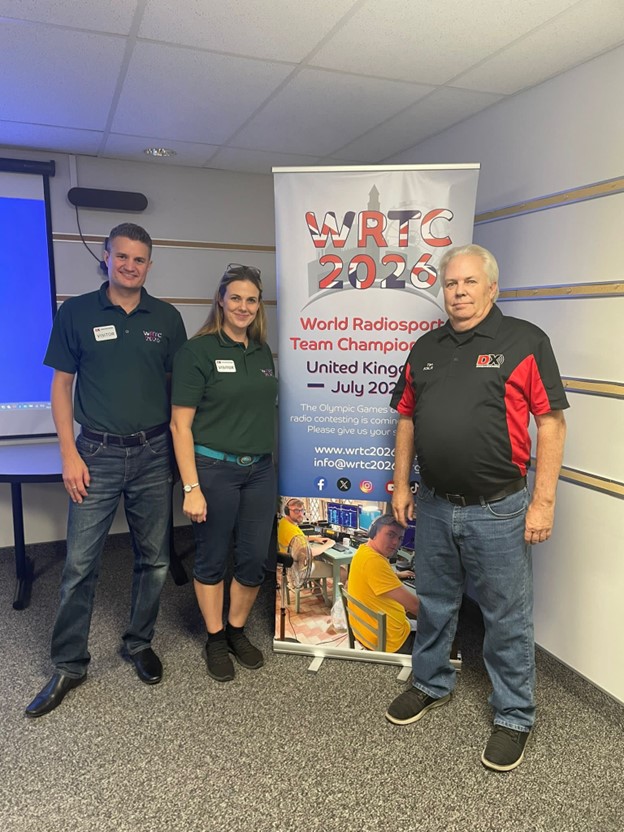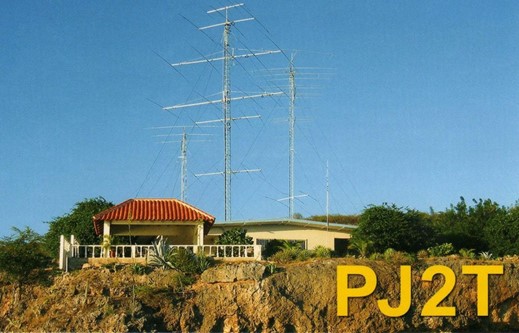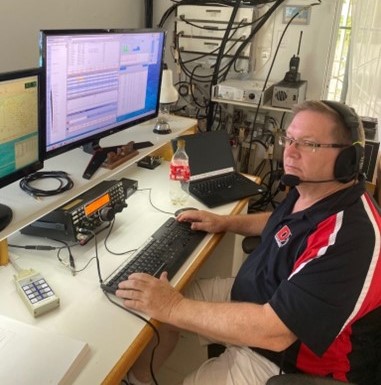Editor’s note: OnAllBands is pleased to post a series of articles written by accomplished amateur radio contester and DX Engineering customer/technical support specialist Kirk Pickering, K4RO. The articles, originally published in the National Contest Journal and updated with current information, offer valuable insights for both contesters new and old.
***
Many amateur radio operators who enter the game of contesting do so in a very casual fashion. Our first few forays into contesting might only involve a few hours of operation, sandwiched between chores, work, and family duties. Little attention is paid to overall score; the operation is simply for the sheer fun of making contacts. Such casual contest operation is the “meat and potatoes” of contesting. Without all of the casual operators on the air, contesters would run out of people to work in a hurry.
The simple joy of “Can you hear me now? Yes, I can!” lures us in—and the outside world, with all of its responsibilities, disappears while we’re on the air.
After participating in a few contests, some operators may discover the joy of competition. It usually starts off in a subtle fashion. We might find that we placed higher than the guy across town with the better station. Maybe we received a certificate for first place in our section, state, or division. Perhaps a concentrated effort in a State QSO Party resulted in a plaque or other nice award.
After a few such achievements, a little light bulb goes off in our head which says, “Hey, I’m not too bad at this, and it’s fun to boot!”
Some contesters might discover a fierce competitive streak within themselves which they didn’t even know existed. Competition is a peculiar phenomenon. What else could drive a person to sit in front of a radio for hours and hours on end to the point of utter exhaustion? Contesting is ultimately a competitive game and, therefore, brings out all of the uniquely human behaviors associated with competition. Some of those behaviors are exemplary, and some are, well, not so exemplary. Ultimately, each operator must decide for themselves what matters most to them.
Winning a contest requires a lot of effort, and the winners are to be respected for their dedication and skills. However, winning a major contest is not the only way to gain the respect of your fellow operators. The mountain of contesting achievement is a tall one indeed. Like some other skill-oriented human endeavors, there is no top to the mountain. There are only views from different heights.
When you see the same operators placing in the top ten in the same contests year after year, it usually represents decades of contest efforts, with dozens if not hundreds of forgettable losses throughout their contesting careers building up to that point.

Is Ham Radio Contesting Fair?
Ultimately, it depends on how you look at it.
From one perspective, it seems that only the largest stations in the best locations with the greatest operators have a chance of winning. While this may appear that the little pistol has no chance, it makes sense if you think about it. The big stations and top operators usually took a long time and a lot of work to get there, and it should be very difficult to compete with them. While it’s true that the bar seemingly gets raised higher and higher every year, history has shown that operator skill is still the most important factor in the equation.
Big stations could not win a single contest without great operators behind the radios. The bad news is that there is really no “level playing ground.” The good news is that those willing to maximize their advantages and skills can opt to compete at whatever levels they choose. One of the bigger challenges facing the new competitor is understanding the playing field. Many new ops get discouraged before they have had a chance to understand how the folks at the top typically climbed and scratched their way up through many years of effort.
I believe it was N5KO who said (paraphrasing), “New contesters can’t understand or appreciate what the masters are doing or why.” They don’t know about the countless forgettable losing efforts that preceded the big wins. The new operator doesn’t understand the amount of time and practice involved perfecting SO2R techniques or copying CW accurately at 40-50 WPM.
I once became very disillusioned with contesting, primarily due to my lack of understanding of the playing field. It took me a while to realize that I really enjoyed the operating and the competing immensely, regardless of the outcome. I learned to choose my battles carefully. I now have a better understanding of what is possible from my station. I’ve traveled for contest DXpeditions and tasted the thrill of world-class competing as a team.
I’m hooked on contesting for life now, but it took some real effort and a deeper understanding of the playing field to get over the hump of feeling like cannon fodder for the big guns.
Location…Location…Location
It is helpful to understand the impact of geographical location on a given contest operation. From the United States, for example, the East Coast enjoys better propagation to Europe, and thus has a considerable advantage in DX contests over the rest of the U.S. The high bands open earlier and longer to Europe, and the low-band paths are shorter distances, over mostly salt water. In the Sweepstakes contests, the place to be is often somewhere between Louisiana and New Mexico—not necessarily the greatest locations for DX contesting.
The point is, different regions experience different propagation, and not all locations are created equal.
There is a reason that DX contest world titles are often won from northern Africa or “three-point” countries in the Caribbean or on the equator. These areas offer terrific propagation paths to the major contesting population centers. That’s why top operators go to great lengths to build stations and compete from such areas.


You’ve Got to Play to Win!
One interesting aspect of contest operating is that the newcomer is essentially competing on the same playground as the Olympic-level operators. So what is a beginning competitor to do? The most important thing a new operator can do is operate a lot of contests and submit their log. One way to earn a little wall decoration for the shack is to choose a contest or category which has smaller hardware requirements than a major DX contest. Some of the State QSO Parties offer great competition, without the need for a mega-station in an exotic location.
The big guns usually prefer to slug it out in the Single Operator High Power category of the major contests. SOHP is generally agreed upon as the ultimate proving ground of an operator, so we should expect very serious competition in that category. The low-power and single-band categories offer great competition as well, with a little more chance for the good operator at an efficient station to succeed. Study the results of previous years’ contests and see if there is a category that might be within reach. Operate the contest full-time, or as close as possible, and send in your log. I’ve seen some contest categories won with fewer than ten QSOs. It always pays to send in your logs no matter what size the effort.
Operating in the mobile, QRP or rover categories also offers a chance to compete and be recognized. The National Contest Journal North American QSO Parties and North American Sprint contests offer great competition and tend to emphasize operator ability over station hardware. An excellent place to start competing is right in our own area. We can study the contest results and identify the operators who are doing well in our area. We can compare our scores with other similarly-equipped stations in our area. If they did better than us, we might want to try to find out why. Did they operate more hours than we did? Perhaps they chose different times to be on the air than we did? Perhaps their station is more effective on one or more bands, or they have better receiving antennas.
Joining a contesting club can be very helpful when trying to measure our success. Seasoned operators from our own geographical area can enlighten us on local propagation patterns. The old-timers can help us understand the possibilities and form reasonable expectations. The advent of more regional reporting has helped a lot toward recognizing great efforts from less-advantaged areas.
Some contests also offer rookie categories or categories for limited antennas such as the CQ WPX contests’ “Tri-bander and Single-element” category. Finally, don’t forget the multi-operator categories! Competing with multi-op teams is a great way to experience the thrill of competition and learn some valuable skills at the same time.
Is Competing Still “Fun”?
For many of us, throwing everything that we have at something like a radio contest is beyond fun. It’s a full-blown escape. It’s a blood-pumping, eye-bugging, exhilarating, and exhausting rush that lasts from the starting bell to the finish. While there are surely tough times of “grinding it out” in any full-time effort, operating an entire contest can be a very gratifying experience.
Competition can be incredibly fun, indeed.
It Really Only Matters to You
Winning is great and is certainly the goal of most top competitors. However, something even more valuable than winning is earning the respect of other contesters. There are ways of earning other contesters’ respect besides winning contests. Of prime importance is how we handle ourselves on the air. Efficient and accurate operating technique is the best way to earn the respect of top contesters. I personally respect the operators with very low error rates, regardless of their score. They are the ones I would want handling my emergency traffic.
Ultimately, it comes down to finding satisfaction in the pursuit itself, regardless of the score. We get out of this game exactly what we put into it. I’ll close this installment with some thoughts from two guys who have seen the view from the top more than once.
N6TJ wrote: “At the end of the day, only you will rejoice if you met any of your goals. As my dear friend Ville, OH2MM, opined to me when we were together in Brazil at PT5A years ago, ‘Jim, only you will remember your Number Ones. Realize that, have fun, and only take yourself seriously.’ Great thoughts to absorb from one of contesting’s top operators.”
Please send me your questions or comments, whether you are a newcomer or an old-timer. I can be contacted at k4ro@k4ro.net.
73!

